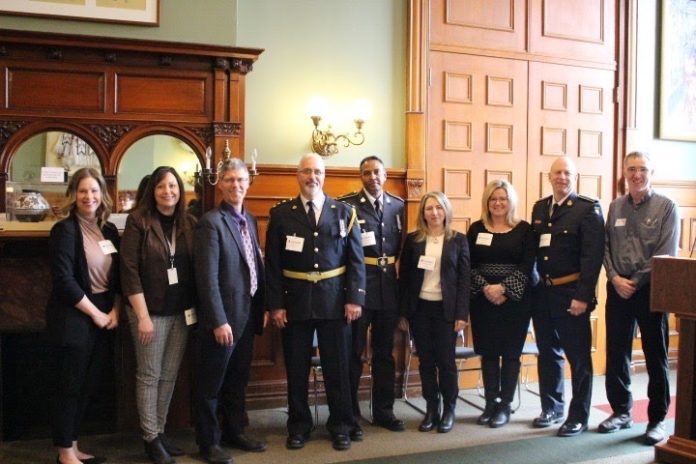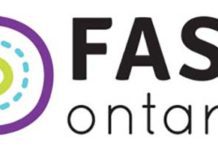by Robert More
One of the benefits of our FASD Awareness Day at Queen’s Park on February 24 was that it allowed us to bring together several partners from across the province including Chief Mark McGillivray of Smiths Falls Police, Inspector Karuna Padiachi and Inspector Derek Needham of the OPP, and Ms. Rebecca Fromowitz of Lanark Mental Health who represented the Lanark County Mobile Crisis Intervention Team that just made the national news.
I was also told at our Awareness Day that most areas have Mobile Crisis Intervention Teams. As a caregiver for someone with FASD, this is the team you want to meet. I would strongly encourage you to meet the point person for that team, introduce your child to them on a good day, make sure they understand what a mental health crisis looks like for you and your child and have a plan and contact info for when this service is needed.
You should also know our local police make a point of coming into our schools, meeting the kids, doing workshops on drugs, drunk driving, vaping, and other topics, and community events like having the kinder’s bike helmets inspected. All of these programs were key in establishing the trust all three of my kids have with the police. We, of course, always talked about these visits afterwards and reinforced how the police are our friends and are safe people to go to. That initial training has always held and enabled us to go to these types of interventions now.
Within our organization, we have seen firsthand how this type of justice approach has led to positive outcomes.
Within our discussions at Queen’s Park, we learned there is a provincial strategy for how these teams operate, but your team will also be unique to your particular area, its needs and resources. There is also, within that provincial strategy, a desire to build knowledge capacity regarding FASD and mental health challenges in general.
As you can imagine, losing this program will create consequences for us. It is a very clear choice of pay now or pay later. Policing and justice costs will absolutely rise.
While you might think this is a local story, it is not. All the mobile crisis intervention teams across the province, or the areas that don’t even have teams, are being impacted by this decision of the Solicitor General to end funding.
If you are a FASD Advocate and don’t have one of these teams, you want to have conversations with your municipality, your police service board, your MPP, and your lo- cal police Inspector or Chief. The current funding from the Ministry comes through the Solicitor General, but could potentially come through the Ministry of Health under the Mental Health department.
Finally, in the Rural FASD Support Network, we speak a lot about inclusivity and accessibility. In 2005-8, the Ministry of Education did a special education project called Essential for Some, Good for All. The recommendations from that project were implemented in the Learning for All document 2013, which still defines our educational instruction and assessment methods today. It should be noted that Inspector Derek Needham of the OPP Kemptville Detachment actually started this program a few years back. He is standing beside me in the photo. Lorena Crosbie of CMHLG is also in the photo.








